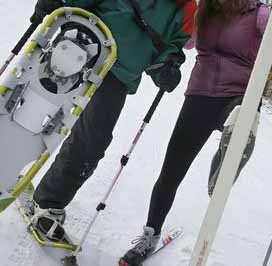My steps have held fast to your paths;
my feet have not slipped. — Psalm 17:5
In this season, we renew our walk along the Way. We journey through the world with our human bodies. Though we also nurture healthy thoughts and emotions, it is our body that communicates the incarnate journey to our mind and heart. Our bodies are wired, by nerves attached to receptor cells, to transmit signals that conduct information to our brain. In this way, our body teaches and guides us.
We know that throughout life, our bodies change. That the signals alter. We may have challenged eyesight or difficult hearing. Even how our bodies move may change. At different ages, we may move confidently and quickly or more intentionally and carefully. Our bodies change, and so does our experience of the world.
What does the world say to you, when you pay attention as you move through it? Do you pause and listen, hearing bird song or river rush or traffic rumble? Do you look up and around and notice new things, such as the sunlight falling through the branches, or the satellite passing through the starry night sky, or the roll of clouds over the peaks? Do you walk steady on your feet, because the earth is bare and safe, or step gingerly, striving for balance after thaw-and-freeze cycles that lay down treacherous ice? Do you sometimes tiptoe or dance, instead of walking? Do you walk backwards or whirl in a circle? Do you change the way you move in the world, surprising yourself and others as you do? Do you, if you’re able, lay down on the ground and look up at the sky?
Are you able to move independently through the world, or do you use assistance, from a hiking pole or cane to a walker or chair? How does this different way of moving alter your perception? How does it change the way others perceive the world, because they know you and care about your experience?
What do you say to the physical world, by how you are present as you live within its environs? Do you put on skis, snowshoes, spikes, or boots, and immerse yourself in the elements? Do you pick up litter or clear the trail when you’re out walking, hiking, skiing, or snowshoeing, to make it better for the next traveler? If you’re driving, do you minimize errands or bring along a friend to conserve fuel and steward energy and resources? Do you take a detour to visit a new neighborhood or appreciate and explore a different scene? Do you shovel or plow snow for your neighbor as well as yourself, to reinforce communal care and connections? Or does someone do these things for you?
Let us consider how we move through the world. Thich Nhat Hanh, the Vietnamese monk who developed the practice of engaged Buddhism, often taught, “When we walk like (we are rushing), we print anxiety and sorrow on the earth. We have to walk in a way that we only print peace and serenity on the earth… Be aware of the contact between your feet and the earth. Walk as if you are kissing the earth with your feet.” In other words, create a tender relationship between yourself and the environment.— Rev Gail
————————————————————————————
Sometimes I need
only to stand
wherever I am
to be blessed.
― Mary Oliver
PRAYER for WALKING
— Thich Nhat Hanh Walk and touch peace every moment.
Walk and touch happiness every moment.
Each step brings a fresh breeze.
Each step makes a flower bloom.
Kiss the Earth with your feet.
Bring the Earth your love and happiness.
The Earth will be safe

